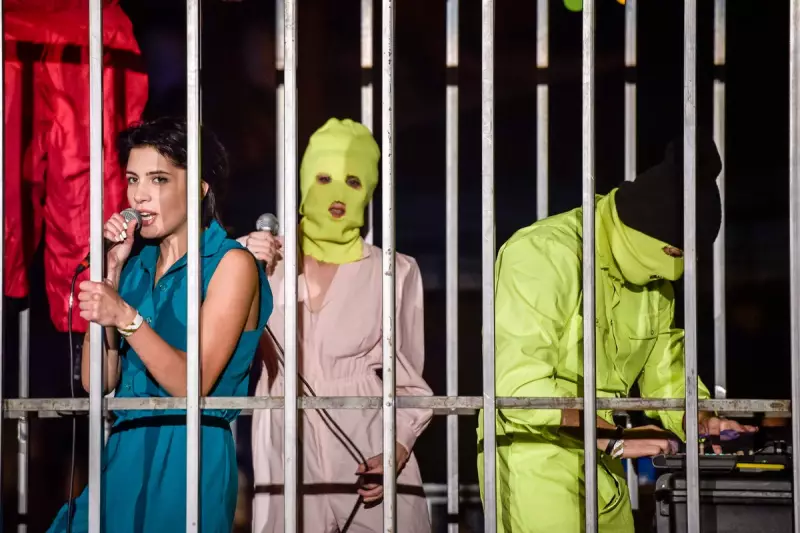
Two prominent members of the Russian feminist protest and performance art group Pussy Riot have been handed significant prison sentences for staging an anti-war demonstration. The verdict, delivered by a Moscow court, underscores the severe consequences for public dissent against Russia's military actions in Ukraine.
Lucy Shtein and a second member, whose identity was confirmed by associates, received sentences of six and seven years respectively in a penal colony. Their crime was a peaceful protest inside a Moscow supermarket, where they replaced price tags with anti-war messages criticising the invasion of Ukraine.
The Supermarket Demonstration
The incident took place in a branch of the Vkusno i Tochka supermarket chain, formerly operated by McDonald's. The activists' goal was to draw public attention to the human cost of the conflict and to challenge the official state narrative. Their actions were part of a broader series of guerilla performances that Pussy Riot has used for over a decade to critique the Russian government.
A Pattern of Political Persecution
This is not the first time Pussy Riot members have faced incarceration. The group gained international notoriety in 2012 when several members were imprisoned following a anti-Putin performance in a Moscow cathedral. Maria Alyokhina, a founding member who was involved in the recent protest, had previously escaped house arrest and left Russia. She now resides in Lithuania.
The sentencing is seen by human rights observers as a clear indicator of the Kremlin's intensifying crackdown on free speech and any form of opposition to its policies, particularly regarding the war in Ukraine. The Russian government has implemented stringent laws criminalising what it deems to be the discrediting of its armed forces.
International Reaction and Ongoing Dissent
The case has attracted widespread condemnation from international human rights organisations, who view the sentences as disproportionately harsh and politically motivated. Despite the risks, the conviction demonstrates that acts of public defiance, however small, continue to occur within Russia.
The plight of Pussy Riot remains a powerful symbol of the struggle for artistic freedom and political expression in the face of authoritarian rule. Their continued activism, both inside and outside Russia, keeps a spotlight on the suppression of civil liberties within the country.





